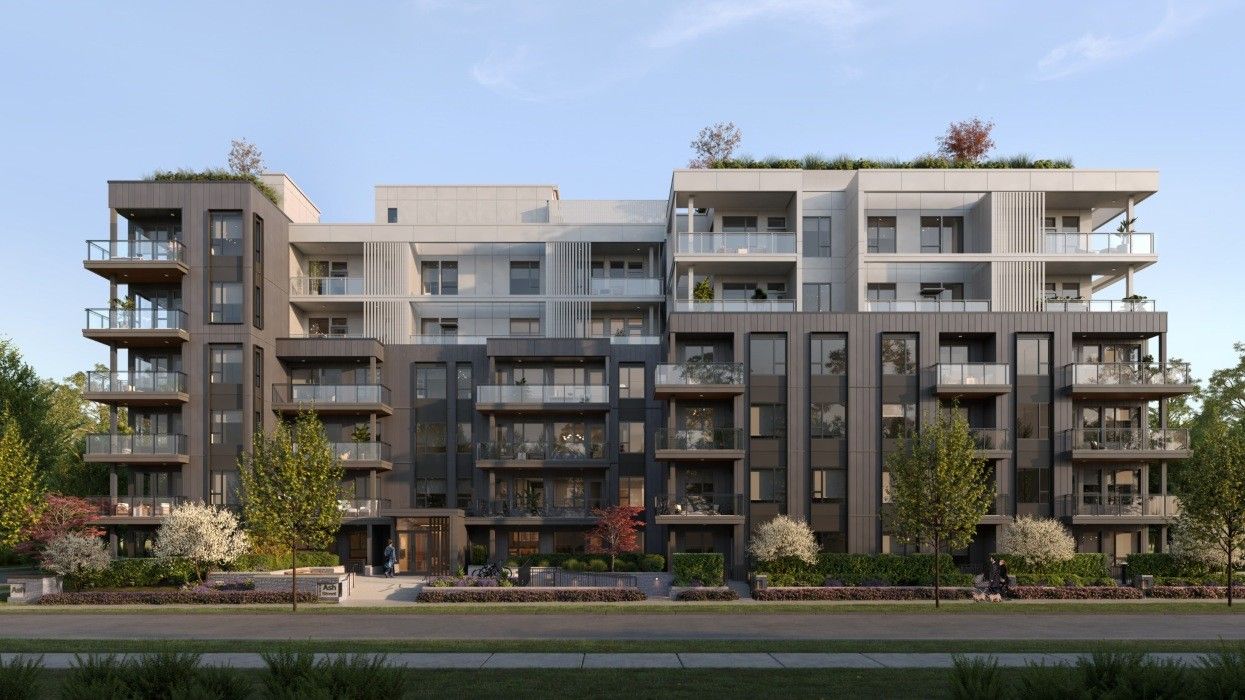In February, the BC Financial Services Authority (BCFSA) announced a new pilot program that would extend the "early marketing period" for large presale projects, in an attempt to give developers more time to get the presales they need to secure construction financing and get shovels into the ground.
Under the Real Estate Development Marketing Act (REDMA), developers are required to secure their building permit 12 months after they file the disclosure statement that allows them to begin selling their project. Generally, lenders require developers to sell somewhere between 60% to 80% of the units with a certain profit margin for construction financing.
Over the years, however, average project sizes have increased, thus the average amount of units in a project has also increased, but the presale period has remained at 12 months. This regulation was introduced by the Province as a consumer protection mechanism to ensure that presale purchasers get their homes in a reasonable timeframe, but British Columbia is the only province in Canada with this kind of regulation and it has forced developers to be extremely cautious about when to launch presales. If a project launches and fails to hit its presale target in 12 months, the effects can be crippling, as seen with CURV.
To address this, the BCFSA's new pilot program extends the presale period from 12 to 18 months for projects with 100 or more units and in-stream projects — projects that had already started their clocks — were also eligible. Upon inquiry, the BCFSA told STOREYS last week that a total of 22 projects have secured the extension. According to BCFSA records, some of those projects include Onyx by Polygon, Vivere by Solterra, Sky Living by Allure Ventures, Manhattan by ML Emporio, and 102 + Park by Marcon.
"I would say that, on the MLA client side, we have not seen any clients make a go-decision purely based off of that REDMA extension," says Garde MacDonald, Director of Advisory at presale marketing and sales firm MLA Canada. "I would also say that it hasn't made a difference in the market. The way that I would put it is 'too little, too late.' The presale market has been very slow for about 2.5 years or 3 years, depending on the area. The fact that they brought it into play earlier this year was just a little bit too late, even though it was well-intended in theory."
Asked whether the change would've had a greater impact if there wasn't the 100-unit requirement or if the extension was to 24 months, MacDonald says he believes it would've had more of an impact if the 18-month period applied to all projects, not just those with 100 or more units.
"I think that if it applied to all projects, you would see some low-rise six-storey projects get across the line that wouldn't be able to otherwise. I think that 100-unit number felt a little cherry-picked, just given the fact that there are a lot of six-storey low-rise projects in the Fraser Valley that end up between 60 to 90 units. I think it would've made a marginal difference, but overall whether it's all projects or two years, I still don't think the fact that it came into effect this year would've made a huge improvement because of how poor the sales performance has been across the board in presale."
The Current State of the Presale Market

MacDonald says there's been 38 presale launches (with a total of roughly 4,300 units) so far this year, which is about 25% to 35% below a normal year, which would be closer to 60 launches and 6,500 units at this time of the year. That reduced amount of launches is another indicator that the REDMA change has not really made a significant difference, says MacDonald, who adds that sales absorption is also down about 60% to 70%.
Developers are surveying the landscape and are not seeing the requisite signs that makes them confident they can sell somewhere between 60% to 80% of their units within 18 months. Thus, they are not launching. The clearest sign of this, says MacDonald, is that there has been just one single presale launch on a new concrete high-rise tower so far this year — Marcon's 102 + Park near Surrey Central Station — that isn't leasehold or the second phase of an already-in-progress project.
"I think the fact that we're seven months into the year and there's been one new concrete tower brought to market really tells you a pretty clear story of the state of affairs in presale," he said. "Unless there is financial pressure or construction timeline pressure, I anticipate the second half of the year, in terms of new launches, to be quieter than the first half. One of the reasons I say that is because many developers who look towards the fall always kind of base their decisions on what happened in the spring market. And because our spring market this year was basically a supply story with very, very little demand, I don't forsee anybody looking at the spring market and feeling confident in bringing their project to market in the fall."
MacDonald says that one of the common questions MLA Canada has gotten this year has been the level of completion risk, as in the percentage of buyers that are not completing on their presale purchases. He says that he hasn't seen anything higher than 5% and that the projects on the higher end of the price spectrum would be the ones that may have more trouble. He emphasizes, however, that usually parties involved — the buyer, the developer, the lender — all want to complete, because not completing often results in additional costs.
"What we are seeing is a lot of creativity from a lot of different lenders or developers, whether it's adding a family member to the contract or negotiating a further credit on the home. Everyone at the table wants to close on these units because if they don't, it just means more costs and more delays within the project. You may have a building of let's say 200 units and 30 people are expressing doubts about closing. The role of someone like MLA or someone at another development shop would be to approach them and try to figure out — with a developer, with a mortgage broker, with a bank — some sort of solution to get them to close. The purchaser doesn't want to lose the deposit and the developer does not necessarily want to re-list the unit in this environment."
Going fowrard, MacDonald says another factor that may affect the presale market is the surge in purpose-built rental that is set to be completed in the near-future. The Metro Vancouver region is slated to see around a 50% increase (above the 10-year average) in new rental supply this year, he says, and what that means is the flattening of average rents is likely to continue and investors could potentially feel less inclined to invest in presales and then rent them out given the increased competition in the rental market.
As for where the light at the end of the tunnel is, MacDonald says the prolonged downturn we're in could extend all the way to 2027 and that the industry may need to even rethink the existing model.
"In terms of the way out, I think it will take some form of change to the presale financing model, because with the investor class not necessarily returning, a lot of these projects that are above 250 units are going to have extreme difficulty selling 180 units in an 18-month period, unless there's either a change in the financing model or a drastic decrease in costs, and it's a little harder to decrease costs as opposed to changing that financing model. There's been a lot of different ideas thrown around, but I tend to think that with how slow policy and government moves, the light at the end of the tunnel is going to be nothing short of Spring 2027 for a normalized presale market."





















